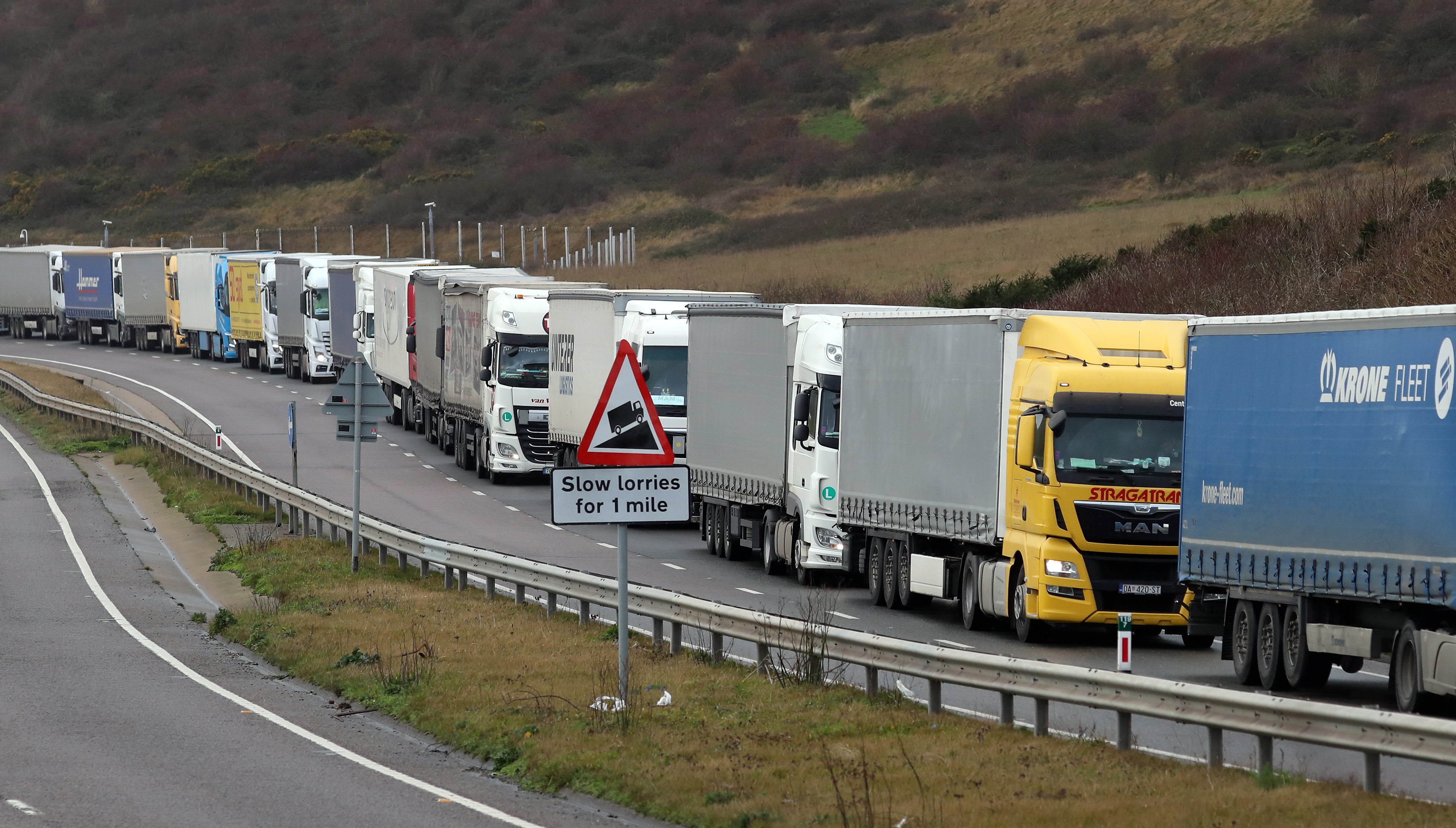The promises over Brexit look broken – and there’s still plenty of political and economic damage to deal with
The view of many businesses is that the trade deal with the EU isn’t helping them to grow – the latest survey from the Chambers of Commerce makes that clear, writes Sean O’Grady


Inflation up. Taxes up. Gas bills up. If elections are won and lost on “the economy, stupid”, then perhaps the Conservatives should be as worried about what’s happening to the economy as they are about Partygate and public fury about the prime minister breaking his own Covid-19 guidance.
The government rightly point out that the economy has staged a remarkable bounce-back after numerous lockdowns, but it merely follows one of the steeper declines among comparable economies. The public finances will also suffer from “long Covid” for decades to come, such was the scale of support applied during the crisis. There will be few options for pre-election giveaways or splurging in the “red wall”. A government unable even to bribe the voters with their own money is in a weak position indeed.
The prospects for the economy post-Covid and post-Brexit are generally regarded as poor-to-middling, with labour shortages and feeble private sector investment and productivity growth being the biggest headaches. None are susceptible to quick fixes. Politically, the broader problem is that the “boosterism” and sunny optimism exuded by Boris Johnson during the 2016 Brexit referendum and the 2019 general election have perhaps raised expectations unsustainably high, and would have done so even without Covid.
“Levelling up” and “building back better” are slogans that have not yet impinged on the real world of jobs and living standards. So is the unleashed potential of “Global Britain”, supposedly free of the “shackles” of the European Union. Glorious things were spoken of Brexit, but the reality seems less exciting. The appointment of Jacob Rees-Mogg as minister for Brexit opportunities, and his appeal in The Sun for Brexit bonus ideas seems like a sad parody of the once heady hopes for new trade deals and global economic leadership. The promises look broken. That is usually a recipe for voter disillusionment, and eventual defeat at the polls.
Given that the Tories and Johnson’s image, reputation and popularity are so inextricably tied to how Brexit proceeds, there are special causes for worry in the latest news from the traded sector of the economy about the impact of leaving the world’s largest single market. The pictures of the queues of lorries and anecdotal evidence from hauliers are being substantiated in industry surveys.
The latest is from the Chambers of Commerce, where seven in 10 exporters say that the EU trade deal isn’t helping them to grow, against one in eight who do say it is helping them increase turnover. The majority of firms, many of them small and medium-sized enterprises, think Brexit has pushed up costs, increased paperwork and delays and put the UK at a competitive disadvantage.
Far from the impression given by Johnson’s promise that there would be no “non-tariff barriers”, leaving the EU Customs Union and single market necessarily implied more checks and paperwork, after various grace periods, the last of which (possibly excluding Ireland) isn’t due to end until June.
All might be well, or better, if there had been some compensatory new trade deals with the rest of the world, but there are few gains to boast about. Many deals are virtually or lately the same as the old ones with the EU (eg Japan), others are more ambitious but necessarily modest in short-term impact (eg Australia), a few will require concessions on free movement of students and workers that were not explicitly promised (eg India), while the two really significant prospective deals look next to impossible for political reasons – the US and China.
The Chambers of Commerce report chimes with the most recent trade statistics, which show a marked reduction in UK exports to the EU compared to pre-pandemic levels. The picture received added gloom with the recent verdict of the cross-party Commons Public Accounts Committee, where the chair concluded that: “One of the great promises of Brexit was freeing British businesses to give them the headroom to maximise their productivity and contribution to the economy – even more desperately needed now on the long road to recovery from the pandemic. Yet the only detectable impact so far is increased costs, paperwork and border delays… It’s time the government was honest about the problems rather than overpromising.”
That, indeed, is the point – “overpromising”. It might have been better had Johnson and his allies, including Remainers such as Liz Truss and Sajid Javid, been more sober about the sacrifices required while the economy makes painful adjustments to its new focus, rather than transmitting an unrelentingly and sometimes blindly upbeat set of vague promises about Britain being about to “prosper mightily”. And all this without the potential trade war with the EU that might be caused by rows about fish, the Northern Ireland Protocol and Britain’s attempt to evade “level playing field” promises.
Brexit might not turn out to be the vote-winner next time around that it was in the last election. It isn’t over, politically or economically.



Join our commenting forum
Join thought-provoking conversations, follow other Independent readers and see their replies
Comments